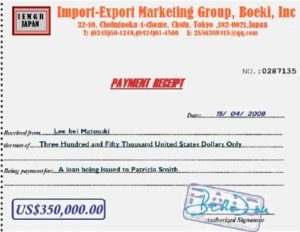Yes, even sophisticated, well-educated attorneys have been the victims of scams. Not all of them are run by a guy in his mom’s basement; there are sometimes complex criminal organizations behind the deception. Even firms who routinely perform significant due diligence have been duped for thousands of dollars. In fact, one scam was so clever it successfully tricked over eighty different firms. But not all hope is lost. Being aware of the issue and taking the right precautions can prevent you or your firm from becoming the next headline.
How Do These Scams Typically Work?
Typically, a potential client will write to the firm asking for help with a debt collection. Often the debt is from a divorce settlement or a business partnership gone badly. Soon after you agree to represent them, the supposed debtor, after little or no effort by you, will magically pay up and send your firm a check for the amount owed. Your client will then tell you to deduct your fee and send them a check with the leftovers. The catch is that the check your firm receives from the debtor will not clear the bank, but the one you send to your “client” will.
The solution may seem simple: just wait to see if the check clears before issuing payment; however, the phony checks are often so credible the bank will actually validate them. In 2012, one law firm sued Wells Fargo for failing to notice a bogus check. Once the bank verified the check had cleared, the law firm deducted its fee and wired the remaining funds of nearly $400,000 to the client, only to find out days later the check was actually fraudulent.
 Here is an example of the fake documents “clients” may use to perpetrate their scam.
Here is an example of the fake documents “clients” may use to perpetrate their scam.How Can I Protect Myself From These Criminal Masterminds?
The most important thing is to be alert for signs of fraud. Stay educated on the issue and watch for patterns that indicate it might be scam. Here are red flags to watch for:
- Initial contact email is generically addressed (“Dear Attorney”).
- Client claims to live abroad.
- The client raises the issue of a conflict check or payment of a retainer (When has a client ever requested to pay a retainer?).
- The client insists the debtor is willing to pay, but he still needs legal help for some reason.
- The debtor pays the full amount (or sometimes more) without any persuasion needed.
- Client refuses to call you and will only communicate via email.
- Client is willing to pay higher than normal fees.
- Client requests that you wire the money as soon as possible to an offshore bank account.
When you see any of these warning signs, be sure to proceed cautiously: run the name of the person or title of the business through Google; search through lawyerscam.blogspot.com to see if other lawyers have reported it as a scam; look up the address using street view in Google Maps; and do not, under any circumstances, wire money before being absolutely sure the check is valid.
Mike H. Bassett is a Senior Partner at The Bassett Firm. Mr. Bassett’s practice focuses on Insurance Defense, Transportation Litigation, Products liability, Premises Liability, and Employment Litigation. He received his B.B.A from the University of Texas El Paso in 1984 and his J.D. with distinction from St. Mary’s School of Law in 1987. Mr. Bassett was voted a Texas Super Lawyer in 2006.
Michael N. Bryant is a Law Clerk at The Bassett Firm. Mr. Bryant received a B.S. in Computer Engineering from Texas A&M University and is currently in his second year at Southern Methodist University Dedman School of Law in Dallas, Texas.

